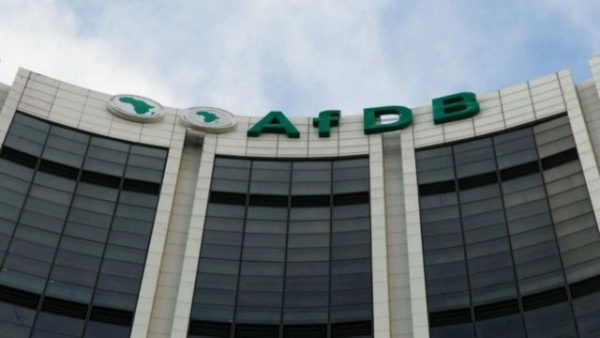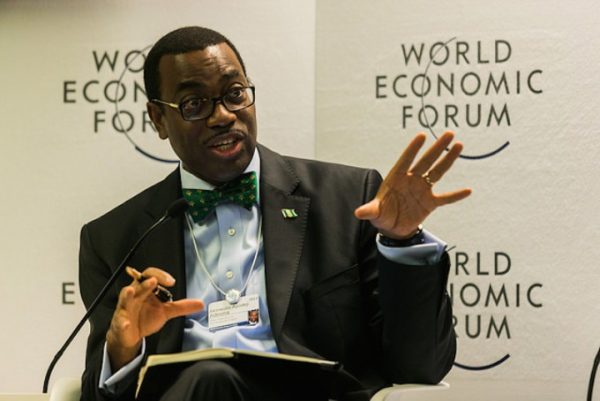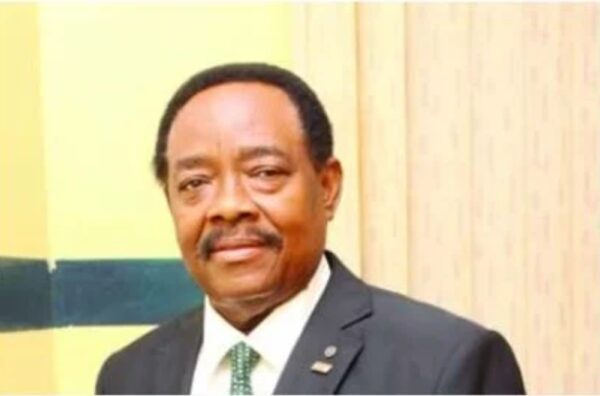AfDB claims $1.64 billion investments in innovations, STEM
- Launches employment coding for Nigeria, others
- U.S trains Nigerian students, women in drone technology
An initiative that is expected to put youths in Nigeria and other parts of Africa on a new pedestal of development, especially through job creations has been sealed by the African Development Bank (AfDB), with its partners- Rockefeller Foundation, Microsoft and Facebook.
The initiative, which was sealed yesterday, at the African Innovation Summit in Kigali, Rwanda, was themed: ‘Coding for Employment Programme.’
By training youth in demand-driven Information and Communications Technology (ICT) curriculum and matching graduates directly with ICT employers, AfDB disclosed that the new programme prepares Africa’s youth for tomorrow’s jobs and unleashes the next generation of young digital innovators from the continent.
AfDB said as part of the drive targeted at preparing them for the future, it had in the last 15 years, invested about $1.64 billion in programmes like science, technology and innovation.
“Putting youth at the center of Africa’s inclusive economic growth agenda is at the forefront of the African Development Bank’s investments and its “High 5s priorities— building businesses, feeding the continent, expanding power and integration, and improving the quality of life for the people across the continent by preparing youth for today’s competitive digital world,” the bank stated.
Meanwhile, in a related development, the United States Consulate-General in collaboration with Baltimore-based Global Air Media, have concluded a two-day drone technology workshop for students and women Science Technology Engineering and Mathematics (STEM) leaders.
The training was held at the Cedar STEM & Entrepreneurship Hub, and American Corner at Co-Creation Hub (CCHUB), both in Yaba, Lagos. A team of three drone experts led by Global Air Media co-founder Eno Umoh facilitated the series of workshops.
AfDB said Coding for Employment is expected to create over nine million jobs and reach 32 million youth and women in Nigeria and other part of Africa.
It noted that as the world moves towards a fourth industrial revolution, the demand for digitisation across health, education, and other sectors is on the rise. Digital innovations have the power to solve the continent’s development challenges and are generating new job opportunities. The youth population is rapidly growing and by 2050, is expected to double to over 830 million. Yet, the digital divide in Africa persists and critical skills gap pose serious challenges to youth securing quality and decent work in a rapidly changing workforce.
It explained that the Coding for Employment Program is at the center of the African Development Bank’s Jobs for Youth in Africa Initiative, which aims to put Africa’s youth on a path to prosperity. By 2025, the Jobs for Youth in Africa Initiative will equip 50 million youth with employable skills and create 25 million jobs in agriculture, information communications and technology and other key industries across Africa.
Commenting, Rockefeller Foundation’s Managing Director for Africa, Mamadou Biteye, said Coding for Employment accelerates investments in Africa’s most valuable resource – its young women and men.
“That’s why The Rockefeller Foundation is thrilled to join forces with the African Development Bank to help every young African reach their full potential. Our partnership with the African Development Bank will establish 130 Centers of Excellence across Africa to help bridge the gap between the digital hiring news of employers and the skills of Africa’s youth,” he said.
According to the Director of Microsoft Philanthropies for the Middle East and Africa, Ghada Khalifa, “digital skills are fast becoming essential for the jobs of today and tomorrow.
“Unfortunately, these skills are beyond the reach of too many young people in Africa. Together with our partners like the African Development Bank, we are working to change that.
“The partnership between Microsoft and the African Development Bank will continue to focus on increasing the participation of underserved youth and women while equipping youth across Africa with the skills needed to fill jobs now and in the future.”
To the Head of Policy Programs at Facebook, Sherry Dzinoreva, the social media platform is excited to partner with the African Development Bank on the launch of the coding for employment program in Côte d’Ivoire, Kenya, Nigeria, Rwanda and Senegal.
“Coding for Employment ensures digital skills are accessible to young people and supports youth with securing meaningful opportunities where they can apply their talents, ideas and expertise to advance the continent’s economic and social development,” she stated.
From his perspective, Director of Human Capital, Youth and Skills Development at the African Development Bank, Oley Dibba-Wadda, said by working together with the private sector, donors, policy-makers, and other stakeholders, “we can secure a brighter future for young African women and men. As part of this new programme, we seek to cultivate the next generation of innovators and to empower young women to lead the continent’s digital revolution.
“Investments in youth through programs like Coding for Employment can stimulate inclusive economic growth, put Africa and its youth on the cutting edge of technological innovations and ensure the digital transformation of Africa is led and managed by young Africans for the benefit of the people of Africa.”
The U.S Consulate explained that 30 elementary and high school students were coached on the basics of building a drone from the scratch, as well as the requisite skills for piloting and landing an unmanned aerial vehicle (UAV).
In addition to the students’ seminar, 13 female STEM leaders were mentored on the evolving technology needs of the 21st century, particularly in the fields of real estate and construction, cinematography, as well as humanitarian and emergency response.
Public Affairs Officer, U.S. Consulate Lagos, Ms. Darcy Zotter, explained that the hands-on workshop was designed to stimulate the interest of the participating students in math and science, as well as careers in the STEM fields.









